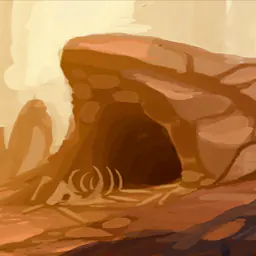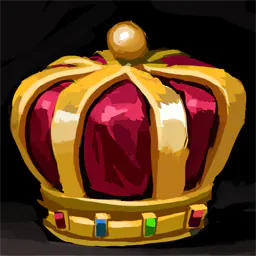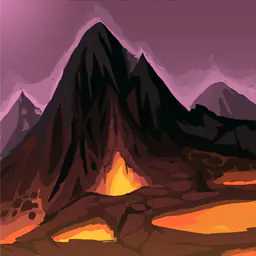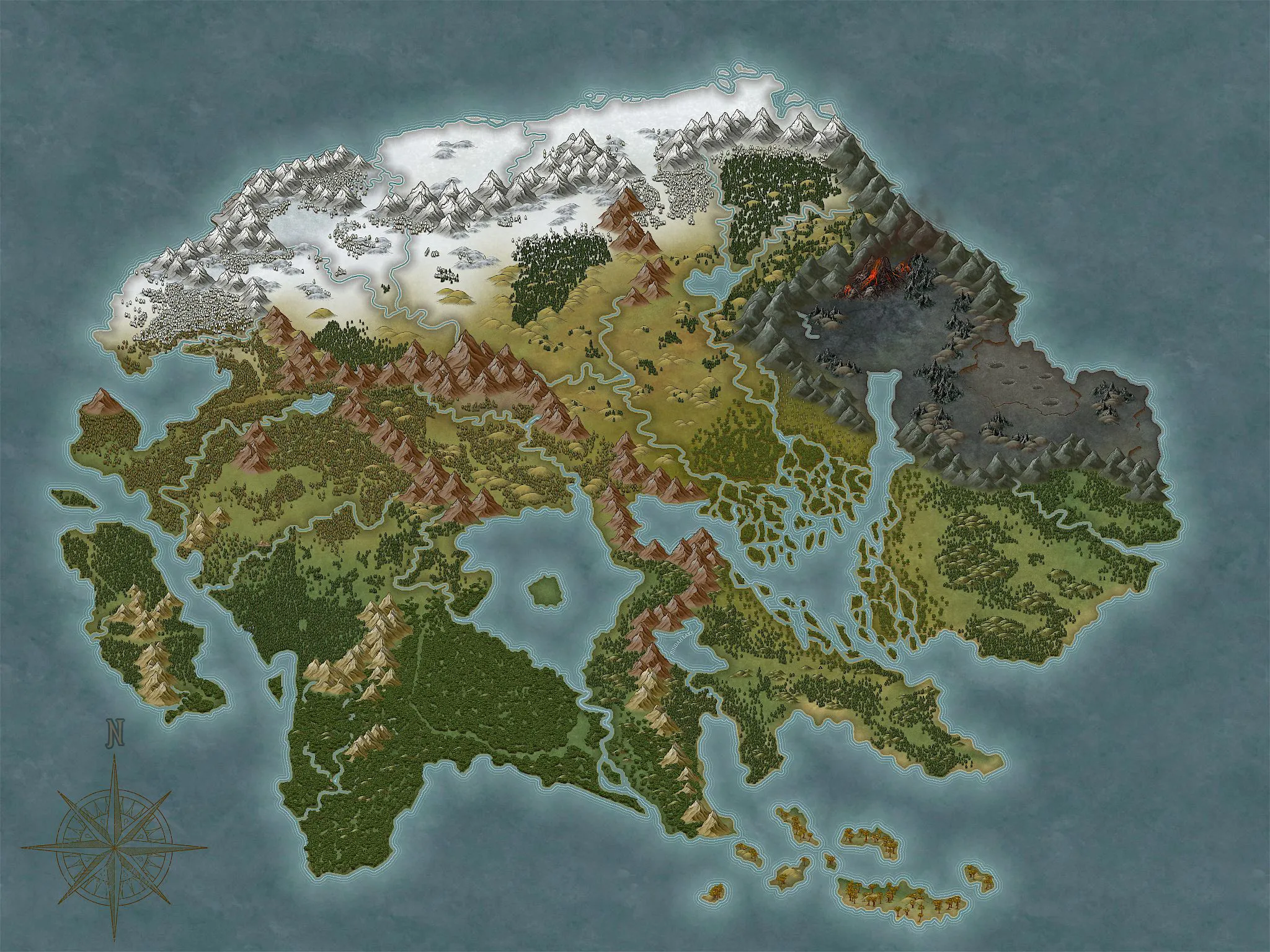Non-lethal disputes, regulated by simple rules that replace typical combat. During a brawl, you do not use regular class abilities (Class Spells, Additional Attacks, etc) but may still utilise passive features such as Unarmoured Defence, Sense of Danger, etc.
Movement: On your turn, you may move up to your normal speed without incurring attacks of opportunity, and make one Action. Usual rules regarding occupied squares apply.
Damage: No actual HP are lost as a result of Brawling. A successful (D20+STR+Proficiency) Prop Attack or Strike instead increases the Brawler’s Fatigue. A Natural 20 on the Attack die doubles the number of Fatigue points applied to the target.
Prop Attacks
Virtually anything you can get your hands on may be used as a Prop. Divided into Common and Epic varieties. Prop Attacks may also inflict additional conditions, which last until the end of the affected Brawler’s next turn.
After use, a Prop is destroyed, lost, or otherwise rendered useless. Picking up a Prop requires an Action. A Bonus action may be used to pick up a Common, but not utilise an Epic, Prop.
Common Props
Mundane items such as Bottles, Candelabras, Cutlery, Dishes, Flasks, Pokers, Pots, Stools, etc, may be used to;
Add 1d4 to an Attack Roll, in addition to other modifiers.
Use a Bonus Action to make a guaranteed Strike.
Increase the wielder’s AC by 2, as a Reaction to an opponent’s attack.
Epic Props
Barrels, Chandeliers, Chests, Companions, Decorative Suits of Armour, Tables, Trunks may be used to;
Make a guaranteed Strike.
Add the Stunned condition to the target on a successful Strike.
Strike 2 targets simultaneously (the attack must be made against the highest AC).
Increase the wielder’s AC by 5, as a Reaction to an opponent’s attack.
| Table I: Brawler Progression | |
|---|---|
| Level | Adjustment |
| 1 | 1 Brawl Skill / 1 Class Feature |
| 2 | Additional Brawl Skill |
| 3 | Shrug It Off |
| 4 | Additional Brawl Skill |
| 5 | Ace In The Hole |
Each character may choose 1 from a number of Brawl Skills and a Class Feature (or optional Spellcaster Feature) based on their level, as indicated in the Brawl Skills, Class Features and/ or Spellcaster Features tables. Each use of these special abilities costs 1 Fatigue point. These are recovered at the end of the Brawling encounter.
| Table II: Brawl Skills | |
|---|---|
| Clothesline | As an action, you may make an Attack roll (with STR or DEX modifier). If you hit, the move deals 1 Fatigue and the target is knocked Prone. |
| Crackin’ Skulls | As an action, you may make an Attack roll (with STR modifier) that hits two different targets. The attack must be made against the highest AC. If you hit, the move deals 1 Fatigue to both targets. |
| Diving Drop | As an action, and situationally conditional, you may make an Attack roll (with CON modifier). If you hit the target, you deal 1 Fatigue and the target is Stunned. You take 1 Fatigue as a consequence. |
| Drop ‘Em | As a bonus action, you may make an Attack (with DEX modifier). If you hit, the target is Restrained. |
| Eat Floor | As a bonus action, you may make an Attack roll (with INT modifier). If you hit, the target is knocked Prone. |
| Glasgow Kiss | As a reaction, when struck, you may make an Attack roll (with STR modifier). If you hit, the move deals 1 Fatigue. |
| Hammer Time | As an action, you may make an Attack (with STR modifier). If you hit, the move deals 1 Fatigue and the target is incapacitated. |
| Feint | As an action, you make others believe you are unconscious. Until you make an attack, you cannot be specifically targeted by others. |
| Intae Them Lads! | As an action, every friendly creature in the Brawl gains Advantage on their next Brawling roll. |
| No Sell | As a reaction, when struck, you may make an Attack roll (with STR or DEX modifier) against your opponent. If successful, the attacker is Stunned. |
| What’s This Slop? | As a bonus action, may make an Attack (with DEX or WIS modifier). If you hit, the target is Blinded. |
| Under The Table | As an action, you can benefit from a three-quarters cover. You gain a +5 bonus to AC and DEX saves. |
You may activate your Class Feature once in any single brawl event, it requires 1 Action, with success determined by a D20+(Specified Ability) Attack Roll, unless otherwise stated. A Brawler with the Pact Magic or Spellcasting class feature may choose to learn a Magic Feature place of a Class Feature each time they would gain a new Class Feature.
| Table III: Class Features | ||
|---|---|---|
| Barbarian | Engorged & Enraged | For the remainder of your turn, your Strikes and Brawl Skill actions deal 1 extra Fatigue. |
| Bard | Kung Fusion | As a reaction, if a creature makes an attack that targets you, you may make an Attack roll (with CHA modifier) against that creature. If you hit, the creature must choose a new target within range to attack. You use this feature before the creature’s roll. |
| Cleric | Sacrum | As an action, you may make an attack (with WIS modifier) to deal 1 Fatigue. If successful, the target is knocked Prone. |
| Druid | Beast Slap | As an action, you may make an attack (with WIS modifier) to deal 1 Fatigue and the target becomes Frightened of you. |
| Fighter | Counterattack | As a reaction, if a creature makes an attack that targets you, you may make an Attack roll against that creature. If you hit, the creature makes the attack against you with disadvantage. |
| Monk | Flurry of Slaps | As a bonus action you can make 2 Attack rolls against a single chosen target. |
| Paladin | The Grapes Of Wrath | As a bonus action, you can make one Attack roll (with STR modifier) to deal 1 Fatigue. If successful, the target is Blinded. |
| Ranger | The Call Of The Wild | As an action, and situationally conditional, you can throw a bait on a target creature. That creature gets hampered by an animal in the area. The creature is Restrained until it deals 1 Fatigue to the animal. |
| Rogue | Sneak A-Whack | As a Bonus Action, you gain advantage on your next attack, and your next Class Feature of Strike deals 1 extra Fatigue. |
| Sorcerer, Warlock or Wizard | Arcane Blow | When you make a Spellcaster Feature, you can spend any remaining Action(s) to deal 1 extra Fatigue. |
| Table IV: Spellcaster Features | |
|---|---|
| All Eyes On Me | As an action, you can choose any single creature, that creature is Charmed by you. |
| Calm Down, Calm Down! | As an action, you choose any single creature. That creature cannot be struck or suffer conditions until the end of its next turn. The target creature cannot move and is incapacitated. |
| Complimentary Upgrade | As a bonus action, you can transform a common prop into an epic prop. |
| Dodgevoiance | When a creature attacks you, you may use your reaction to impose disadvantage on the Attack roll. |
| Fetor Spray | As an action, you can make an Attack roll (with CHA, INT or WIS modifier). If you hit, the move deals 1 Fatigue and the target is Poisoned. |
| Magic Fist-fight | As an action, you can make three attacks (each with CHA, INT and WIS modifiers respectively) against three different targets, dealing 1 Fatigue to each target hit. |
| Primal Scream | As an action, you may choose any single creature, that creature becomes Frightened of you. |
| Protection from Blows | As an action, choose a willing creature you can see; all attacks made against that creature have disadvantage until the end of its next turn. |
As Fatigue points are gained, their effects begin to take their toll and make the combatant a less effective Brawler. As shown in the table below. All effects are cumulative though can be offset by Class or Spellcaster Features. A Brawler of at least 3rd Level can also utilise the Shrug It Off ability to remove up to their level of Fatigue points once in a single Brawl.
| Table V: Fatigue | ||
|---|---|---|
| 1 | Rumpled | Attack at Disadvantage. |
| 2 | Broken | -1 AC |
| 3 | Beat | -1 STR |
| 4 | Scarred | -1 AC |
| 5 | Bleeding | -1 CON |
| 6 | Downed | – |
A Brawler of at least 5th Level gains the Ace In The Hole ability, which grants them an additional option, useable once in a single Brawl.
| Table VI: Ace In The Hole | ||
|---|---|---|
| Barbarian | Float Like A Butterfly | Until the start of your next turn, you cannot take Fatigue points or suffer conditions. |
| Bard | Heart-breaking Note | As an action, you hit the most heart-breaking note. Each brawl participant must succeed on a Constitution saving throw or take 1 Fatigue and become Incapacitated. All friendly Brawlers have advantage on the Saving Throw. |
| Cleric | If You’re Listening, Help! | As an action, you receive a Holy Blessing and a Stray Danger hits all your enemies. |
| Druid | The Goggles Do Nothing! | As an action, you spread a cloud of irritating pollen around you. Each brawl participant must succeed on a Constitution saving throw or suffer 1 Fatigue and become Poisoned. All friendly Brawlers have advantage on the Saving Throw. |
| Fighter | Vorpal Punch | You make a single Strike which deals 3 Fatigue. |
| Monk | On Your Knees And Pray! | Your target must make a Constitution Saving Throw or fall to the ground as if Downed. |
| Paladin | Summon Mount | You summon your mount into the midst of the Brawl. It makes 2 Attacks using your regular Attack bonus, and then leaves via the closest available, if not most appropriate, exit. |
| Ranger | It’s A Trap! | When a Brawler moves, you may use a Reaction to activate a trap, dealing 2 Fatigue to the target and causing them to be Restrained. |
| Rogue | Sting Like A Bee! | As a Reaction, when a Brawler makes an attack against you, you can dodge the Attack and land a Strike of your own, dealing 1 Fatigue against the target. |
| Sorcerer | Supreme Misfortune | As an action, you trigger a superstitious event (walking under a ladder, breaking a mirror, throwing a black cat across a room, etc) of your choice. All Brawlers must make a Wisdom Saving Throw or drop any items they hold and become Frightened. All friendly Brawlers have advantage on the Saving Throw. |
| Warlock | The Bad Touch | Until the start of your next turn, any Strike against you or a friendly Brawler results in 1 Fatigue to the chosen enemy Brawler. |
| Wizard | Fire Bowl | As an action, you throw a bowl of piping hot broth across the area. All Brawlers must make a Dexterity Saving Throw or be dealt 2 Fatigue points. All friendly Brawlers have advantage on the Saving Throw. |
There is a 10% cumulative chance of a random event happening during the Brawl scenario, determined by a d8 die roll. This triggers at the start of the round in which it activates.
| Table VII: Organised Chaos | ||
|---|---|---|
| 1 | Rain Of Stools | Every Brawler must succeed on a DC11 Constitution Saving Throw, or be Stunned. |
| 2 | House Of The Flying Punches | Every Brawler must succeed on a DC12 Strength Saving Throw, or be dealt 1 Fatigue. |
| 3 | River Of Beer | Every Brawler must succeed on a DC13 Dexterity Saving Throw, or be knocked Prone. |
| 4 | Flour Snow | Every Brawler must succeed on a DC10 Dexterity Saving Throw, or be Blinded. |
| 5 | Get This Guy Off Me! | Every Brawler must succeed on a DC10 Strength Saving Throw, or be Restrained. |
| 6 | Barrel In Peril | Every Brawler must roll 1d6. On a result of 1, they are dealt 1 Fatigue point and knocked Prone. |
| 7 | Animal House | A small group of animals break free from somewhere and run through the scene causing havoc. For 1 round, after choosing their Action(s), every Brawler must roll 1d6. On a result of 1, they Strike the animal instead of the intended target. |
| 8 | It’s Raining Ham! | A random selection of cured and cold meats suddenly fall from above. Every Brawler must roll 1d6. On a result of 1, the Brawler is dealt 1 Fatigue and is Stunned. |
Credit to Archeron Books for the Brancalonia Setting Book, the Brawling rules from which were the inspiration for the above content.









